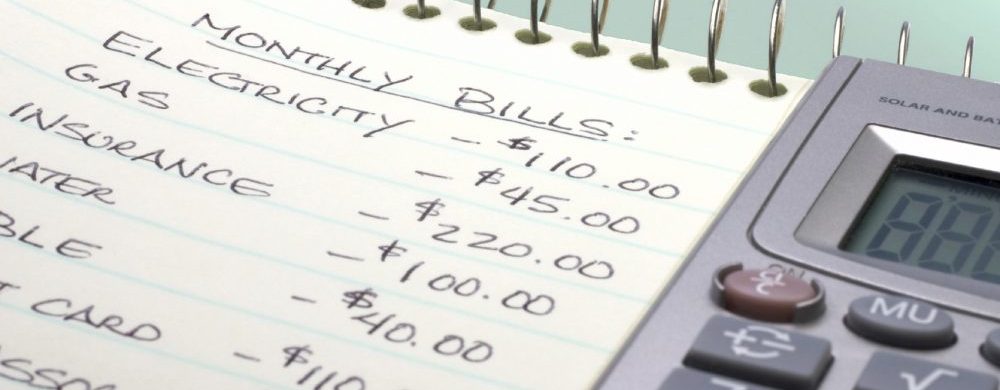Everyday living expenses add up to have a significant impact on your weekly budget. Between rent, utilities, groceries, loans, and insurance, it seems there isn’t much left in the bank after a hard week’s work. While some expenses can’t be avoided, others may be causing you to live outside of your weekly or monthly budget.
Impulse purchases or unnecessary bank fees can leave you in a pickle when your budget is already exhausted by necessary living expenses. While you might feel like you have already cut your budget to the bare minimum, there are effective ways to reduce your living expenses for those extra tight months. A little self-control and some serious reflection on your everyday expenses can lead to a more effective financial planning strategy for your entire family.
Reduce your Entertainment Budget
Weekend excursions, gym memberships, and magazine subscriptions are all examples of entertainment expenses. The entertainment budget is the most popular category of overspending in household budgets. Maybe the kids worked extra hard to ace that test this week, or your spouse wanted to surprise you with a special dinner, and you decided to splurge this weekend. Regardless of the reason, many of us exceed our entertainment budget causing other areas of budget expenses to suffer.
There are many ways to cut living expenses when it comes to your entertainment budget. For starters, you can make an extra effort to keep from extra weekend expenses like eating out or costly activities. Assess your entertainment bills like cable, magazine subscriptions, and gym memberships. Most household cable bills cost $100 a month, while an alternative Netflix subscription is only $8 a month. Instead of expensive dinner dates, invite friends over for a dinner party and encourage everyone to bring something. Cut out magazine subscriptions. And, look for free entertainment options in your community. These can be fun for the whole family and serve as a more entertaining option than costly movie tickets or theme park entrance fees.
Evaluate Transportation Costs
Do you live in a busy city? Is there easy access to public transportation, such as buses, trains, and subways? If you have options to use public transportation, this can be a huge cost savings for your family. By using public transportation, you can eliminate expensive car payments, gasoline expense, and insurance costs.
If you don’t have access to other options when it comes to transportation, consider carpooling. By partnering up with a work buddy, or someone who works close to your place of employment, you can split the cost of gas.
Trim Down on Treats
Sure, grabbing a coffee is only $3 a day, but did you ever think how much that adds up to a month? If you purchased coffee every day, that adds up to $90 a month. Brew your coffee at home. Save the to-go coffee as a special treat, or for those times you are really having a time restriction problem.
Eating out should be dealt with the same. Buying lunch at work every day can be a huge expense over time. Food preparation can be fun when you get the whole family involved. Plan a day each weekend to prepare lunches for the week. Grab your lunch on the way out the door and you will notice a great change in your expense budget. That goes for eating dinner out as well. It might be much easier to grab something on the way home, but keep quick meal options available and you will save money and eat healthier.
Monitor Your Energy Consumption
Energy consumption has a major effect on your monthly utility bills. Take time to evaluate your bill and look for ways to reduce your energy consumption. Try lowering your air conditioning while you are at work or traveling. Unplug your electrical devices when they aren’t in use. Be sure you have a full dishwasher before running it. If you have a habit of forgetting to throw your laundry in the dryer, work a little harder. Extra water and electrical fees from running the washer and dryer add up to a great deal of excess in bills over time.
Get Organized to Improve Your Financial Planning Strategy
One of the biggest problems, that an overage in household budgets comes down to, is improper organization methods. How many times have you gone through the week without knowing what’s in your bank account? This is a huge mistake. One swipe of your debit card can lead to overdraft expenses that are simply like throwing money in the garbage.
Stay consistent and write out your income and expenses each week. Talk about using a system to help you keep control of your expenses. Envelope systems are old-school, but very effective. By placing a certain amount of money in an envelope, labeled gas, groceries, or other expenses, you reduce the problems caused by mindlessly swiping a credit or debit card. Free online budget applications, such as Mint, can send important reminders about upcoming bills to avoid late fees.
Managing finances can be a struggle some days, but doesn’t have to remain a lifelong problem. By following these effective ways to cut living expenses, you will notice a great change in your ability to stay within your weekly or monthly budget. Talk to your financial advisor about the most effective financial planning strategy for your budget.

